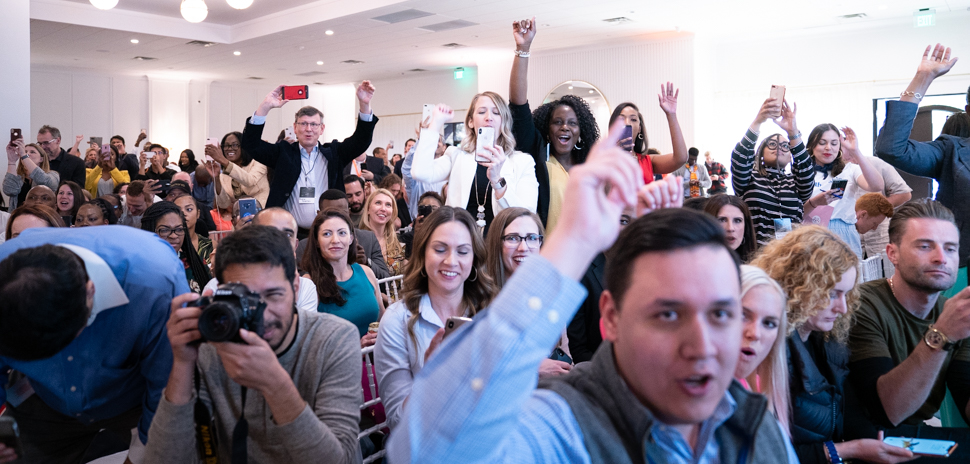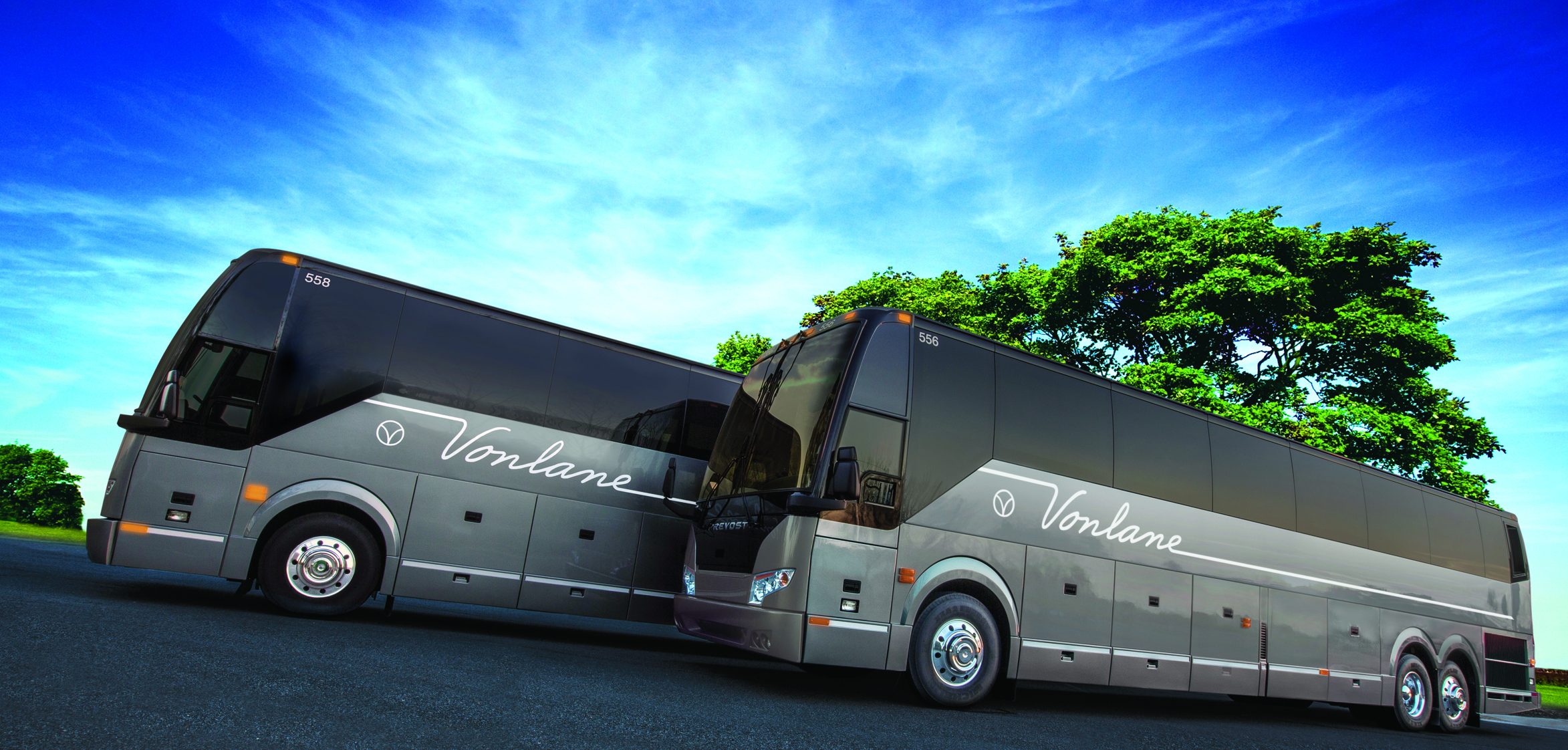A version of this story was originally published in Dallas Innovates: The [Tech] Talent Issue.
Everyone loves an exciting success story.
Take rewardStyle. This eminently recognizable tech startup, which provides influencers with a platform to monetize their social media presence, first opened shop in a small Dallas studio apartment in 2011. Today, it’s grown into a company with 250 employees across the globe and an international presence.
Other examples include parking solutions startup ParkHub, life insuretech Bestow, luxury ridesharing service Alto, and Fixd, a home repair and warranty business recently purchased by parent company Angie’s List.
These companies all have strong roots in the Dallas-Fort Worth region, and it’s not difficult to see what makes this place so conducive to innovation: We have 22 Fortune 500 companies and seven nationally accredited universities. There’s also the tech-savvy precedent that started with the telecommunications boom of the 1990s, and a diverse population that comprises a favorable testing ground for new products.
Though these elements set the stage, they’re not the most important pieces when it comes to creating fertile ground for success. In order to launch, startups require the right people—and not just one or two of them.
“It takes an ecosystem,” said Cameron Cushman, director of Innovation Ecosystems at the UNT Health Science Center (UNTHSC). “No one person, no one startup founder can do it all themselves. They’re going need help—on accounting, or legal, or investments, or technical expertise. They’re going to need a lot of different things in the development of their business.”
Where to find your tribe
Community collaboration and connectivity power innovation throughout North Texas. After all, a strong and engaged local community is the best way for entrepreneurs to meet their future business partners, discover talent, connect with funders, and receive feedback.
“This is a very welcoming community that supports each other and the work that’s being done,” said local web developer David Fares. “There aren’t a lot of people holding onto their piece of the pie and not willing to share it with others—there’s a sense of collaboration.”
But in North Texas, where do we go to collaborate? To meet like-minded people? To launch our next big idea?
Sometimes, the first “start” of a startup is as simple as grabbing a cup of coffee.
Startups, meet-ups, and coffee cups
Coffee-centric meet-ups are some of the easiest ways that entrepreneurs can plug into the local community. Consider the prevalence of Open Coffee Clubs—there are a handful of these groups strewn across the Dallas-Fort Worth area. Their format is simple: They’re hour-long, before-work meetings where people passionate about technology connect.
Caitlin Studley, who hosts BigDOCC, the Open Coffee Club that meets at CENTRL Office in downtown Dallas, explains the group as a place for discourse on the latest tech news, everything from the scooter phenomenon to the ethics of Facebook to major company acquisitions. Attendees—anyone at any stage of a tech career or entrepreneurial journey—discuss what’s new in the scene, connect over their current projects, discuss job opportunities, and look for ways to help each other.
For Studley, director of culture at Lifeblue, an important part is helping point people in the right direction. For example, she might connect a female developer with a nearby Women Who Code group, a designer with the monthly meetup group CreativeMornings, or a user experience professional with the local chapter of UXPA International.
“I’ve always tried to be a connector,” Studley said. “I like to figure out what value I can provide.”
Fares, who’s on the board of the local Independent Game Developer’s Association, moderates the Video Game Open Coffee Club, which meets in Frisco (typically at Nerdvana) and Plano (at the CityLine Whole Foods Market). This Open Coffee Club offshoot encourages conversation based around the local game development community.
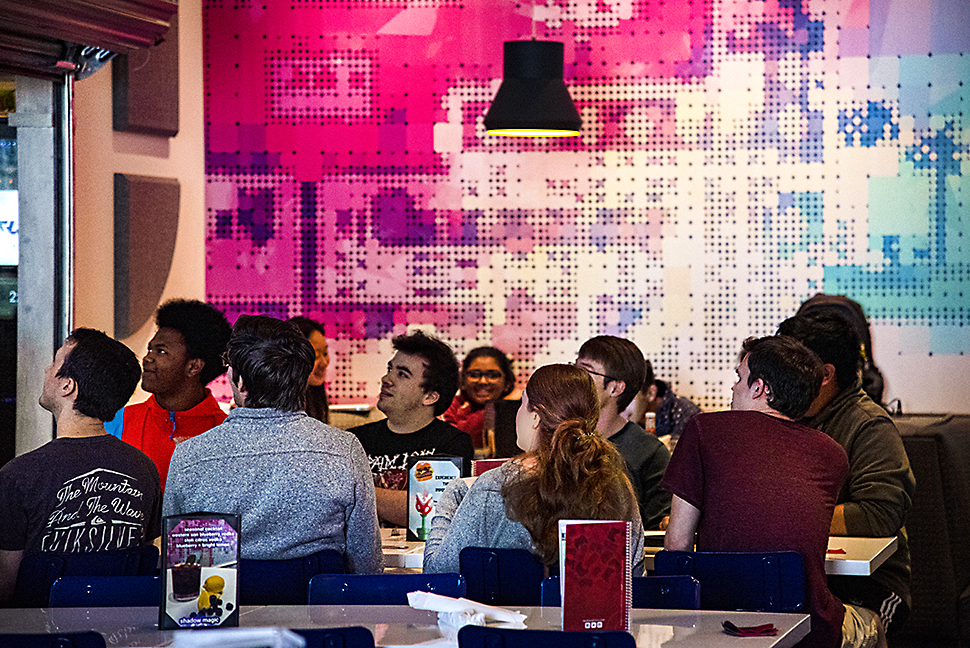
Think of Nerdvana Frisco as two places rolled into one. On one side is a contemporary American restaurant that celebrates video game culture with game consoles at some tables. The other side is a coffee shop replete with board game decor and games you can buy. [Photo: Erin Gilliatt]
Perhaps the mother of all coffee meetups, though, is 1 Million Cups, a national organization that spawned chapters in Dallas (which typically meets at the Venture X) and Fort Worth (which meets at Locavore). Once a week, one or two local innovators present their startup to a caffeinated assemblage. When the pitches conclude, the group offers feedback, critique, and ultimately, a question of how the larger community can help the presenters’ startups take their next steps.
These kinds of organized meet-ups are often the best bet to discovering like-minded people in an area with a population that’s burgeoned past 6 million. But, Fares said, setting up and working at business-friendly, locally owned coffee shops can often make North Texas feel like a small world. “You’ll end up running into people from all over,” he said.
Other spots, like The Joule Hotel (Downtown Dallas), are a best-kept secret for serendipitous encounters with local movers and shakers. Having a cup of Joe at the community table just outside the Taschen bookstore is on more than one entrepreneur’s list of favorite spots.
Connecting through coworking
The market for coworking space is competitive, but the companies that differentiate themselves are the ones that provide value to the local startup scene, generally through programming, events, and reduced-fee or even free coworking. These are the ones that “really get it,” Studley said.
Coworking spaces are some of the best places to find technologists and innovators, and Studley points to Common Desk, Treehouse Addison, GoodWork, and Stoke, all of which offer resources to fledgling entrepreneurs and serve as hubs for the community.
There are plenty to choose from, with nearly 100 coworking locations in North Texas. In total, they occupy more than 3.4 million square feet of office space. That’s enough to fill a couple of downtown’s largest skyscrapers, according to a 2019 report by CBRE.
As the industry grows, newcomers to the coworking sector are doing more to cultivate a niche audience of like-minded individuals. The region offers an array of focused options.
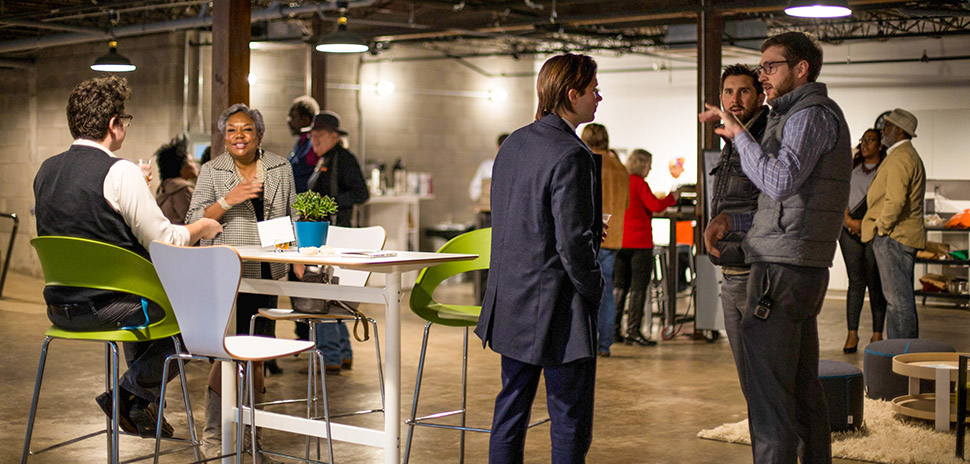
GoodWork
For example, the inclusive, flexible workspace that is GoodWork aims to do right by both people and planet. Tailored to sustainability and wellness, GoodWork is solar powered, eliminates indoor pollutants, and offers education on how to grow a responsible business. It also aims to be the first in the world that’s both LEED and WELL certified. And, it’s dog friendly.
Her.HQ launched in 2019, joining other female-focused spots like The Slate and The Riveter. Her.HQ is an experiential workspace designed to empower women while creating a community of like-minded individuals. It found a home in a 6,000-square-foot space in Oak Cliff formerly occupied by Common Desk. Inside are health and wellness programs, creative exploration, and career advancement information.
In Fort Worth, Locavore—or “local foods”—is a foodie’s take on coworking. The kitchen offers commercial grade appliances for individuals or startups to try and scale their creations in a collaborative, supportive environment. Space can be rented month-to-month, and there’s an event space on-site for pop-up dinners and chef showcases.
Another coworking space, Formation, offers opportunities to ‘work the Cowboys Way.’ The coworking space at the Dallas Cowboys World Headquarters at The Star in Frisco is a one-of-a-kind connection to the team and owner Jerry Jones. It offers a full suite of luxurious amenities, as well as office furniture, tools, and environment like those used by Cowboys executives and the Jones family.
Formation recently added new membership offerings, increased meeting rooms and added benefits like the C-Suite Playbook Series, which is designed to give access to executives and insights to inspire. The series kicked off in February with former Dallas Cowboys teammates and DFW real estate moguls Roger Staubach and Robert Shaw.
“In true Dallas Cowboys fashion, we wanted to take things a step further by increasing our membership options,” Jerry Jones Jr., Dallas Cowboys executive vice president and chief sales & marketing officer, said.
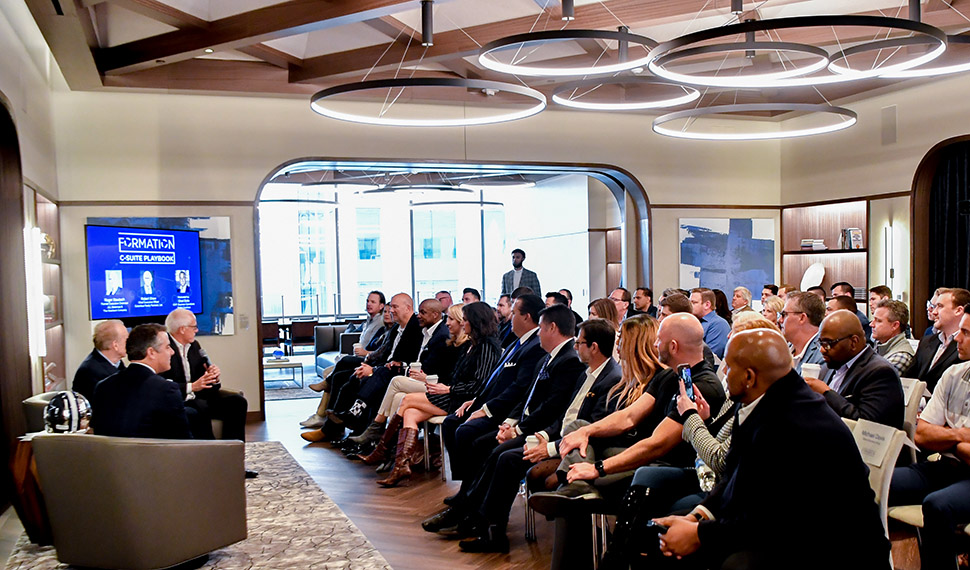
Formation’s C-Suite Playbook Series kicked off in February with former Dallas Cowboys teammates and Dallas region real estate moguls Roger Staubach and Robert Shaw. [Photo: Courtesy Formation]
Creative minds unite
Dallas Makerspace is also a point of collaboration for local innovators. The volunteer-run nonprofit bills itself as the “world’s largest” makerspace of its kind. And it’s recently doubled its size to 36,000 feet, providing a slew of different classes and equipment that facilitate tasks as disparate as glassworking, 3D printing, and superconducting.
It’s a place where people go to be inspired as well as to connect, said Dallas Makerspace board president James Henningson. “From the technology and idea standpoint, you will find no shortage of people willing to assist in your project, and potentially partner and add value to your project if you’re trying to incubate an idea.”
Its also a place to connect with companies. Dozens of companies ask to partner with the Makerspace, the team said.
“The Dallas Makerspace is a quirky organization that can be almost whatever you want to make of it,” Erik Smith, the Makerspace’s secretary, told Dallas Innovates last year. “A place to get some projects done in an expansive workspace. It can get you access to tools you’ll never be able to afford or fit into a home garage. It can be a place to develop ideas for a business. It can be a place to rub shoulders with creative people of varying interests. It can help you take ideas from dreams to initial concept to prototype to production.”
Many other makerspaces are scattered throughout the region, with memberships that range from under 10 to more than a thousand. The Dallas Regional Chamber has compiled a list and a map of options that folks can explore.
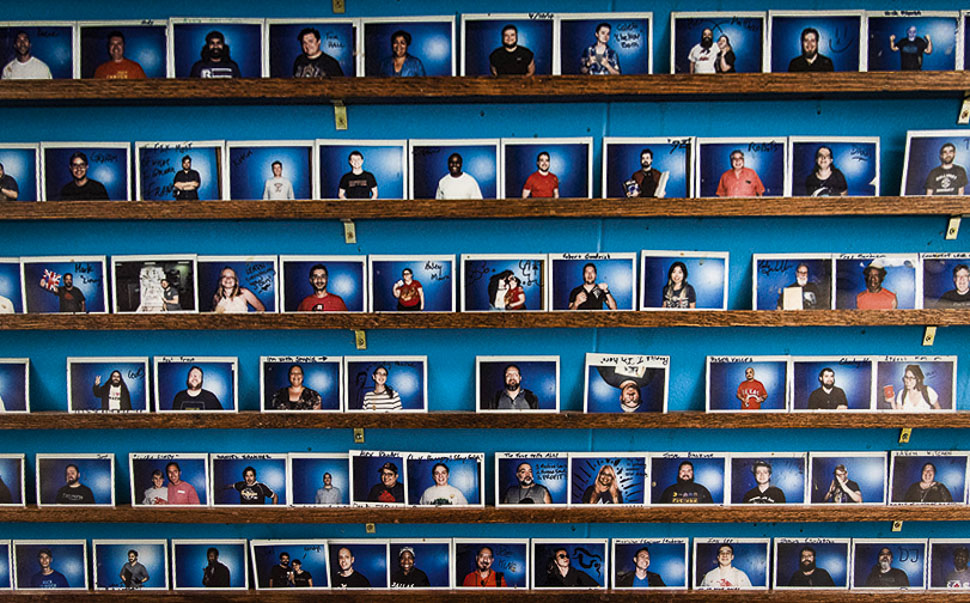
Established in 2010, the Dallas Makerspace began when members of the Dallas Personal Robotics Group needed a place to meet. Now, it has become a model for similar makerspace facilities nationwide. [Photo: Erin Gilliatt]
Plugging in to community and capital
Capital Factory, an Austin-based company that partnered with the Dallas Entrepreneur Center for its 2018 Dallas market launch, provides programs and support to startups across the state, including coworking, a mentor network, and workshops. Capital Factory’s VC fund is also the most active early-stage investor in Texas, said Bryan Chambers, vice president of Accelerator and Investment Fund for Capital Factory. Capital Factory deals with companies primarily post-launch, and helps expand entrepreneurs’ connections in the Dallas-Fort Worth locale, but also across the state of Texas.
“Our whole mission and one of our big advantages is that we are working to connect these major markets into one super region, or super city, so early-stage resources flow across markets,” Chambers said. “We think we can unlock billions of dollars in new value in this way.”
By “super region,” Chambers refers to the area that comprises North Texas, Austin, San Antonio, and Houston—a dense, geographically unique stretch that holds exceptional competitive advantages. And the main way this “super-region” can share talent, customers, and investors is, of course, through technology.
Chambers said, “if Texas works together, we could compete with any country in the entire world.”
Chambers also is one of nine North Texas dealmakers who unveiled an enterprise of their own last year: Venture Dallas. The new tech conference gave startups and investors an opportunity to connect with innovators, business luminaries, and investors from around the nation.
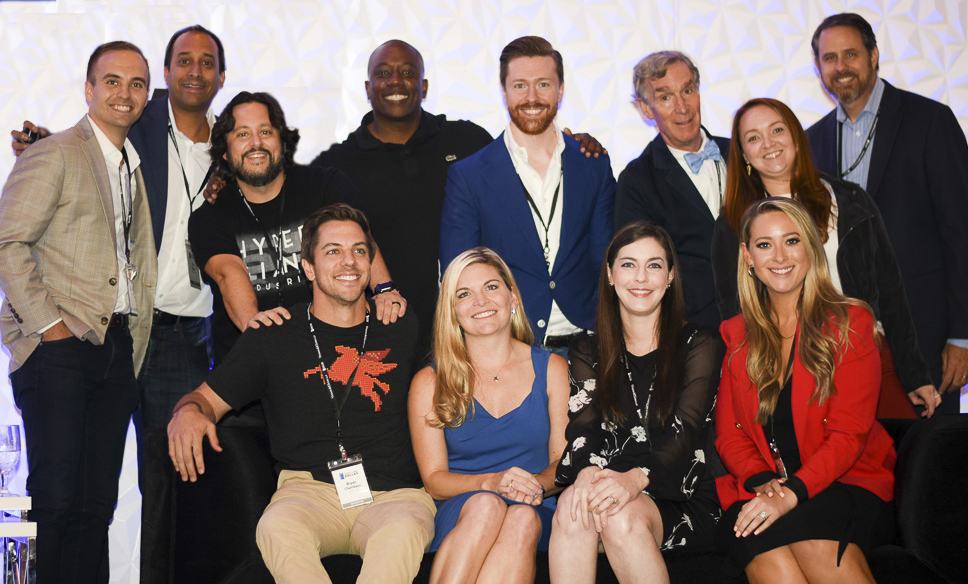
The Venture Dallas host committee with guest speakers science icon Bill Nye, serial entrepreneur Ben Lamm, and govtech guru Molly Cain. Clockwise, from left: Aaron Pierce, JF2 Capital; Vik Thapar, Cypress Growth Capital; Ben Lamm, Hypergiant Industries; Bryan Chambers, Capital Factory; Molly Cain, GovCity Group; Samantha Colletti, Silicon Valley Bank; Natalie Pazera, Dallas Regional Chamber; Cindy Revol, Perot Jain; Duane Dankesreiter, Dallas Regional Chamber, Bill Nye; Jonathan Crowder, Intelis Capital; and Joe Beard, Perot Jain. [Photo: Courtesy Venture Dallas]
“I suspect a number of DFW startups will build new and meaningful relationships with many of the nation’s leading venture investors as a direct result of meeting them at Venture Dallas,” Chambers said of the event held in September. “Many startups will go on to continue conversations after the conference, and our hope is that some will go on to secure millions of dollars in venture investment.”
After its successful inaugural run, the two-day Venture Dallas summit is slated to return in Sept. 2020.
Fort Worth is Funky Town
In Fort Worth—or Funky Town, as UNTHSC’s Cushman calls it—TechNest is a free weekly interactive, entrepreneurial session designed for entrepreneurs to learn and grow from each other. “It’s open to all entrepreneurs in the startup ecosystem,” he said.
Fort Worth also boasts Sparkyard.co, a partnership among the city, TCU, and UNT Health Science Center. The online resource offers specialized guidance for entrepreneurs at every step of their journey.
The connectivity that cyberspace provides is important in a community where technology is at the forefront—and our local Dallas-Fort Worth startup scene has a vibrant online presence.
In terms of online hubs, Studley points to the Dallas-Fort Worth Startup Community group page on Facebook, and encourages interested parties to seek out invitations to various Slack group chats, including the DFW Devs Channel, which has nearly 1,300 members.
And, of course, there’s Twitter, Facebook, and Instagram for following local influencers and jumping in on conversations around technology, entrepreneurship, and innovation.
Irving is another hotspot for innovation connection in the region: “indeed, connecting Fort Worth and Dallas,” as Tom Foley, founder of The Study puts it. Foley, who practiced law for nearly two decades, is an adjunct professor at Paul Quinn College and North Lake College, where he teaches classes, including Social Entrepreneurship.
The Study is an Irving-based community and resource center that concentrates on women- and minority-owned small businesses, many of whom are in traditional businesses, Foley said in an email. “We have a myriad of resources, including an in-depth six-week program to scale your businesses, aimed at small revenue generating businesses, in partnership with the CEO of Aviall.”
On the fourth Wednesday each month, The Study hosts a mastermind series for defined cohorts along with One Million Cups.
Know where to look
Entrepreneur Chirag Gupta, founder and CEO of NŌD Coworking, said it’s important to know where to start your search. He recommends looking at programs and resources provided by chambers such as the Dallas Regional Chamber (which serves North Texas) and the economic development office of your particular city or suburb. Many other chambers are active in the region, including the U.S. India Chamber of Commerce DFW, which just wrapped its annual Women’s Conference in February.
Events can be key, and Gupta suggests seeking out a local coworking community and other venues hosting startup community events.
In a previous column on Dallas Innovates, Gupta suggests a few options: In downtown Dallas, you might start at The Dallas Entrepreneur Center; in North Dallas, you could visit NŌD Coworking or Addison TreeHouse; in Denton, check out Stoke; and in Fort Worth, visit IDEA Works FW or TECH Fort Worth. Once you’ve found the closest venue, check their online calendars for upcoming events.
The region is a friendly playground with people who genuinely want to help others succeed, Gupta notes.
“Don’t miss” annual events
One of the region’s premiere events for entrepreneurs and innovators is Dallas Startup Week (DSW20). Over the course of six days in April at Gilleys, The Dallas Entrepreneur Center’s annual keystone event will host 100-plus sessions across 16 tracks with the goal to connect and unite startups, founders, corporate and social innovators, investors, and community leaders.
DSW20 also features special events and programs from the popular Women of Innovation summit to Disrupt Dallas with programming for minority entrepreneurs to the marquee State of Entrepreneurship event.
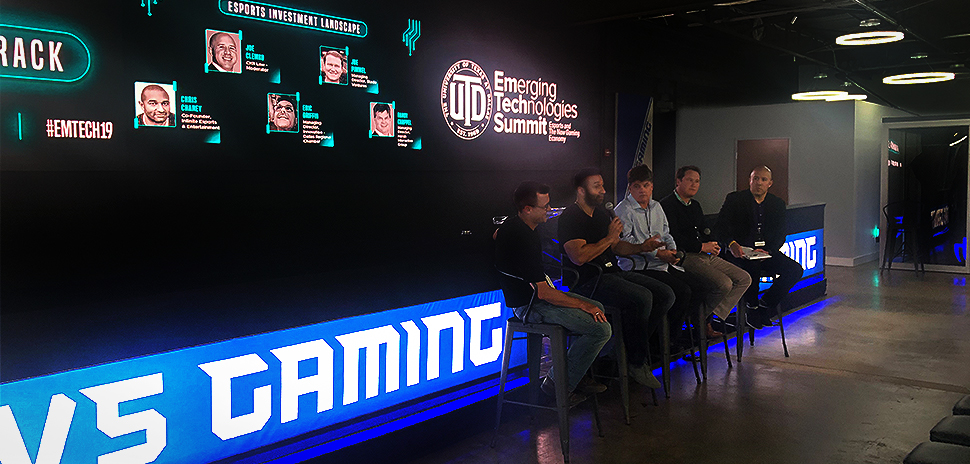
Dallas Startup Week drew a crowd for its esports track events in 2019. [Photo: Christopher Augustine]
Another event coming up next month is EarthX, which aims to brings together four entities—commercial, nonprofit, governmental, and academia—to network and put people together. The largest environmental event in the world just happens to be in Dallas. EarthX in an environmental experience that consists of a film festival, conference, expo, and education that runs from April 17-26 in Dallas.
To say it’s big is an understatement.
“EarthX can be to Dallas, what SXSW is to Austin,” Chambers told Dallas Innovates last year. Chambers worked with EarthX on its E-Capital Summit. He’s bullish on the opportunities it offers our region and its entrepreneurs with regard to clean technology.
EarthX, formerly Earth Day Texas, was founded by Trammell S. Crow in 2011 as a way to showcase environmental innovations and initiatives to help the public become catalysts for change.
“I think this is an opportunity for this community to come together a little bit better in terms of ‘how do we take this national-level event in our own backyard, and utilize it better,’” EarthX CEO Tony Keane said in an interview last year. Keane said he and Crow would love to sit down with locally based innovators, technology startups, and existing companies to better learn how to showcase their story.
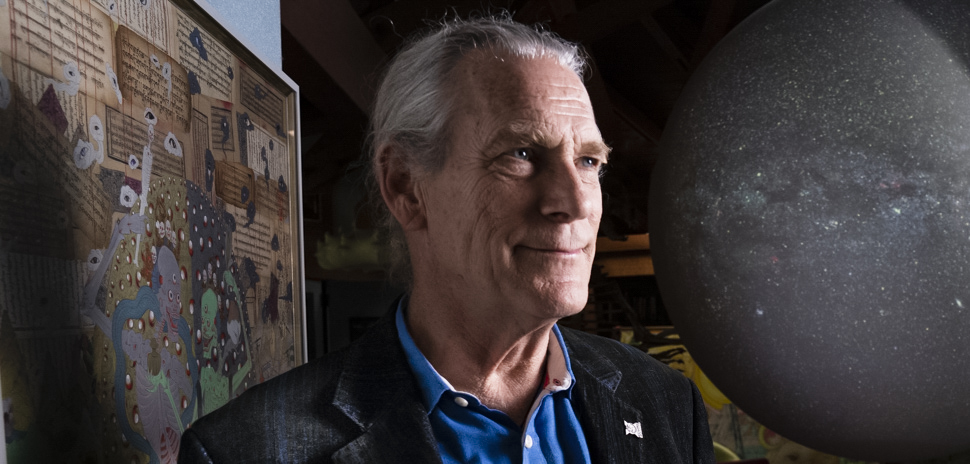
Trammell S. Crow is a Dallas businessman, philanthropist, entrepreneur, and brains behind “the largest annual environmental exposition in the world.” [Photo: Rebeca Posadas-Nava]
Local entrepreneur Jasmin Brand, founder of creative agency The Start, identified a new opportunity that’s coming soon to the region. Dallas has been selected as a featured host city for the 2020 Backstage Capital Tour in May.
Dallas is the only Texas stop for the multi-city, one-day event series that will bring “knowledge, investment, and connection to underrepresented founders and the ecosystems that help them grow,” according to Brand, who is the official Dallas city lead for the tour.
Venture Capitalist Arlan Hamilton founded Backstage Capital to invest in startup founders who identify as a woman, person of color, and/or LGBTQ.
Something for everyone
In addition to annual and touring events, the region offers plenty of niche options for local innovators and thinkers, from groups like the Texas Inventors (a group of inventors that meets monthly in a public library in Plano) to the 3rd Friday IoT SIG Breakfast (a monthly meeting of all things IoT for technologists, business execs and entrepreneurs).
Tiffany Ricks, the CEO and founder of Hacware, a minority- and women-owned startup specializing in AI and cybersecurity product development, said she appreciates seeing more black founders on panels, conferences, leadership lists in Dallas-Fort Worth. “Now, I see this happening more organically,” she notes.
Ricks recommends several local organizations and meetups where black tech founders can meet other talent and find community: The Dallas Fort Worth Minority Supplier Development Council, the women of color group of the Women’s Business Council SW, Dallas Blacks in Tech Meetup, and the Dallas Chapter of the National Society of Black Engineers.
Hackathons can also be a great way to connect, and maybe find a job, said entrepreneur and UTD graduate Adam Kila (who goes by the singular moniker “Kila”). Kila’s company, Asterisk, uses hackathons to unite problem-solvers and redefine everything from recruiting to how a company uses technology.
Hackathons are all about coding collaboration in the extreme, Kila said. Participants build, create, and deliver a product. Asterisk’s hackathons deliver on all levels for both companies and the talent—from problem-solving to meeting potential job candidates, and more.
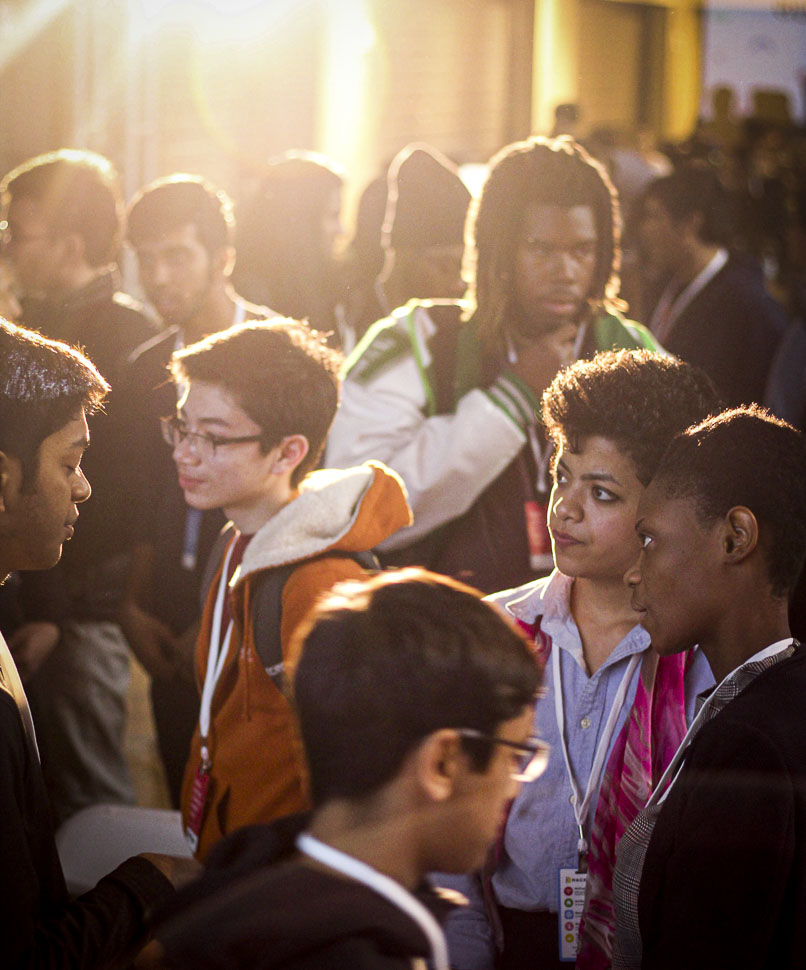
Hackathans bring people together through shared experience, Asterisk founder Kila says. [Photo: Courtesy Asterisk]
North Texas’ Tech Titans, billed as the state’s largest technology trade association, is another option to connect with the region’s innovators—corporates and startups alike. The organization forums around specific technology verticals where you can meet and share ideas around tech trend areas. Targeted forums include analytics, AI, blockchain, cybersecurity, design & manufacturing, health tech and IoT.
The group hosts its annual award event, The Tech Titans Awards Gala, in August.
An intersection of art and technology
Joshua King, the force behind public art event Aurora, considers Dallas at the forefront of the technology-in-art movement. When asked where he makes his connections, the answer is “everywhere”—from Instagram to LinkedIn.
“That’s the great thing about technology,” King said, “you have instant access to an artist or organization.”
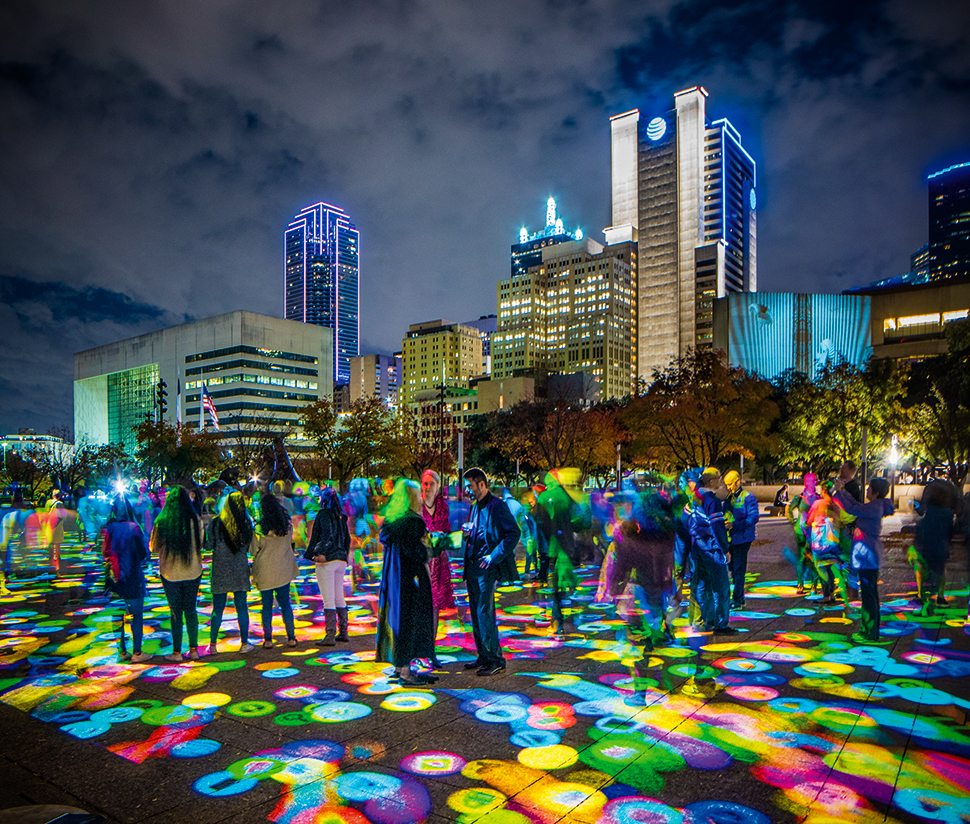
Aurora, the public art extravaganza of immersive light, video, and sound, illuminated downtown Dallas in 2018 with 17 installations and performances. A biennial event, the 10th anniversary of Auroa is set for 2020. [Photo: Michael Samples]
“Dallas is home to a thriving arts culture, which is critical to inspiring innovation and creativity,” Sanjiv Yajnik, president, Financial Services, Capital One said. Capital One is involved with many programs in the region, including the Dallas International Film Festival (DIFF), that help elevate the region as a world-renowned destination for creative thinkers and makers.
“The intersection of art, tech, and commerce are vitally important to the growth of DFW and Texas,” agrees Johnathan Brownlee, CEO and president of Dallas Film/executive director of Dallas International Film Festival. The festival will bring together filmmakers, celebrities, and industry leaders this year from April 16 to 23.
As a supporting sponsor of the Veterans Institute for Film & Media, the festival also offers opportunities for veterans to pursue careers in film, TV, and media production.
Another group aimed at the creative community—aptly named Creative Mornings—hosts a monthly breakfast lecture. People gather around fresh coffee, and breakfast foods for an inspiring talk based on a global theme. The Dallas local chapter helps celebrate the region’s local talent, hosting speakers that range from design legends to social innovators to hometown heroes.
Life/Work in Dallas-Fort Worth
“I definitely encourage my own employees to embrace their families, hobbies and passions.” James Helms, VP of Design at Intuit, said. “I’m a firm believer that creativity requires downtime, outside interests and a certain amount of ‘semi-productivity.’ We are immersed in so many inputs each day, our brains need time to process that in the background. And to create organic “collisions” which force new ideas and connections to form.”
Dallas-Fort Worth has plenty of places to go to support an innovator’s life/work blend—and create those all-important collisions.
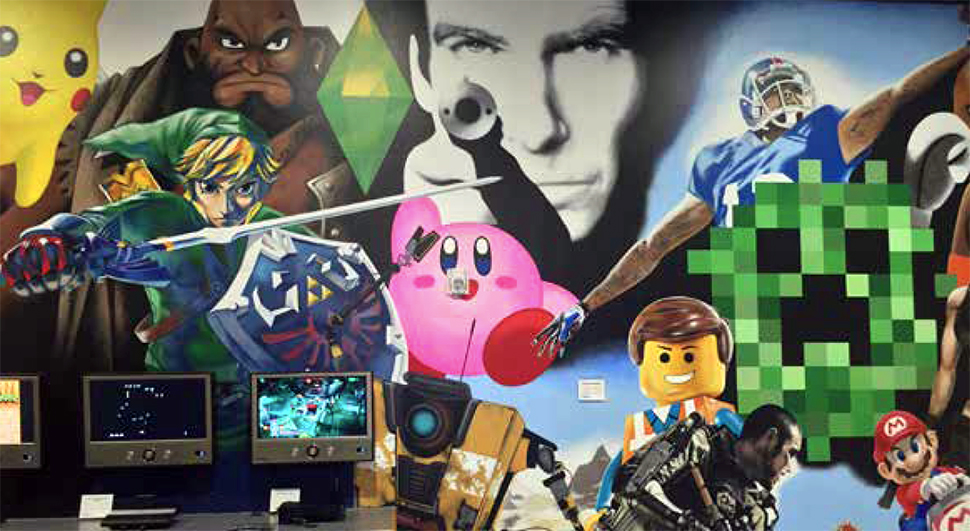
The U.S. National Video Game Museum in Frisco is a hands-on museum about the history of video games and the video game industry.
One favorite of local tech types, Frisco’s National Video Game Museum, is a gaming blast-from-the-past. Dedicated to documenting and preserving the stories behind video games—and letting nostalgia run free by actually making the games playable—the museum is a place to expand on creativity and competitiveness. People can step into the ‘80s, follow a timeline of consoles, or learn in the on-site STEM classroom.
Some social options, such as The Network Bar (Dallas Design District) and the new Office 772 (Downtown Dallas), sit at the intersection of business and pleasure. Both have membership models.
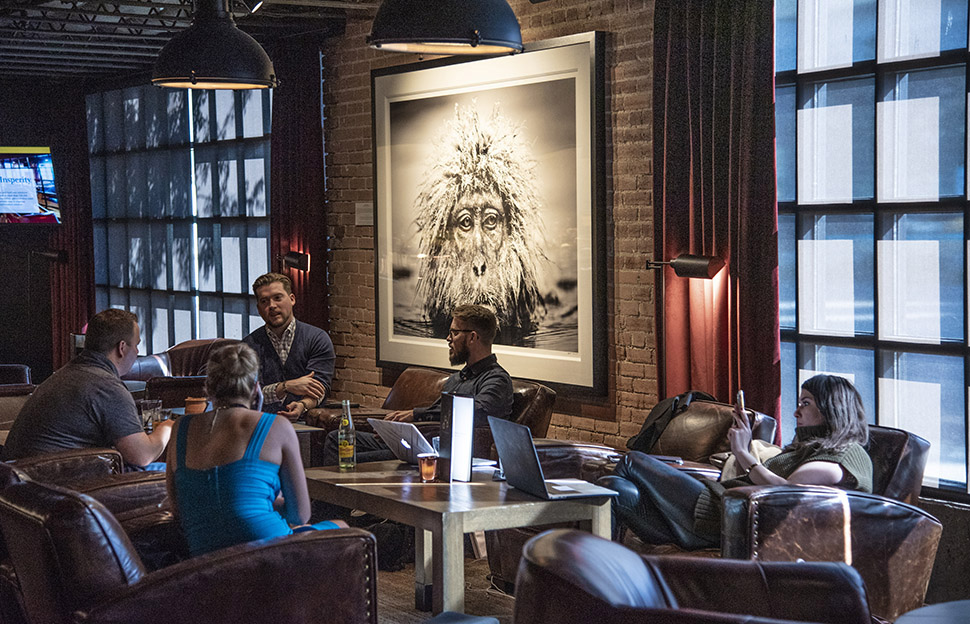
The Network Bar in Dallas’ Design District. [Photo: Courtesy The Network Bar]
There’s a see-and-be-seen aspect to the The Network Bar, as a dedicated space for professionals to mingle. With craft cocktails and food on the side, it has an atmosphere designed to promote productivity, inspiration, interconnectivity, and collaboration. Its members get access to a diverse industry network of local talent, which is enhanced through the bar’s mobile app.
Office 772 is, literally, a hidden gem. Common Desk’s new private cocktail bar and social club concept boasts a private, speakeasy-style entrance. Its “one-of-a-kind atmosphere” is inspired by its the personal office of its namesake: Trammell Crow. The cocktail lounge is housed at Common Desk’s largest location, Trammell Crow Center in Dallas.
With more square footage, Clark had more room to be creative.
“If you know Common Desk, you know we like a good happy hour,” founder Nick Clark said. “And we like to surprise people with our amenities.”
The new bar concept is something of a dream come true for the experiential coworking company, and the new location really raises the bar (pun intended) with its premiere amenity, he noted.
Office 772 operates as an amenity to Common Desk members and the tenants of the building. “But social memberships are available,” Clark said.
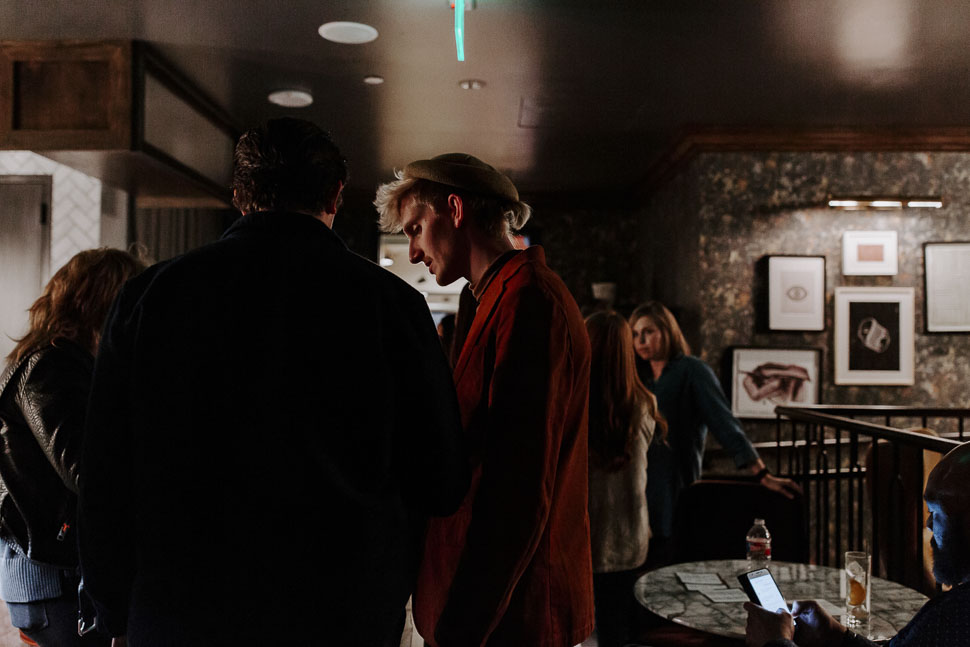
Office 772 [Photo: Courtesy of Common Desk]
Speaking your language
Whether we find our next business partner while tapping away on our laptop at Mokah in Deep Ellum, connect with a founder during a discussion put on by the Dallas Entrepreneur Center, or receive some good advice in cyberspace, having a diverse population to engage with is a big part of what drives our tech community.
Ultimately, North Texas has many attributes that make the area favorable to technologists, entrepreneurs, and innovators: a low cost of living, an impressive collection of higher education institutions, and a ponderous corporate presence. But ultimately, it’s about us—a community who believes innovation is important not just for individuals, but also for our entire region.
And as long as we can take a little time to lend a hand, make a connection, or simply stop for a cup of coffee, the future is bright.
Alex Edwards contributed to this report.
Venue details were updated on March 10, 2020.
Read it online
Dallas Innovates: The [Tech] Talent Issue, a special edition of the Dallas Innovates Magazine, looks at how companies in Dallas-Fort Worth are attracting and retaining the best talent. Startups, corporates, nonprofits, and organizations work hard to create a strong culture, promote diversity, and implement training programs that can help achieve success.
![]()
Get on the list.
Dallas Innovates, every day.
Sign up to keep your eye on what’s new and next in Dallas-Fort Worth, every day.










